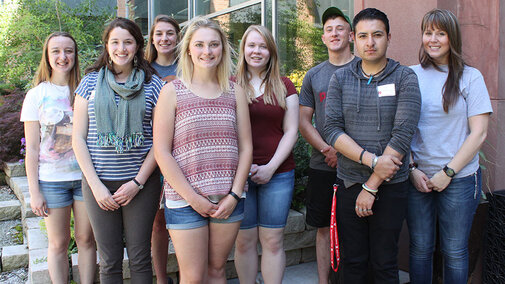This past summer in the Department of Agronomy and Horticulture eight students were awarded an Undergraduate Research and Extension Experiential Learning Fellowship in Integrated Agronomic Systems at the University of Nebraska–Lincoln. The fellowship, which was funded by a grant from the U.S. Department of Agriculture-NIFA-AFRI Food, Agriculture, Natural Resources and Human Sciences Education and Literacy Initiative, provided an opportunity for students to learn about research and extension while working directly with faculty mentors with expertise on corn/soybean cropping systems, cover crop/crop residue management, grassland systems ecology and soil management.
Student learning goals included:
- Improve understanding of integrated agronomic systems.
- Learn how agronomic experiments are designed.
- Measure and analyze fundamental crop and soil variables.
- Develop an extension case study to address a producer concern.
- Effectively communicate extension and research outcomes.
- Develop networks with other students, government scientists, industry leaders, faculty, and extension personnel in the field of integrated agronomic systems.
- Acquire specific skills necessary to apply to graduate school.
To address the extension goal of developing a case study, students were tasked with developing a CropWatch article related to their interests and research they were participating in. The following CropWatch articles were written by fellowship participants including Becca Clay from Iowa State University, Joey Geisler from UNL, Natalie Holste from Missouri University of Science and Technology, Rebecca Johnson from ISU, Martina La Vallie from Augustana University, Sarah Morton from UNL, and Andi Nichols from Oklahoma State University.
The articles reflect a growing interest among extension clientele, faculty, and students about use of cover crops and annual forages in integrated agronomic systems to increase forage for grazing livestock and improve soil ecosystem services. Yet, much remains unknown about management of such systems and their impacts on corn/soybean yields, forage production and soil and environmental quality. Thus, developing student skills in conducting research, communicating findings, and educating crop and livestock producers in this emerging area of agriculture is a priority.
These CropWatch articles illustrate the students' scholarly pursuits to learn about these applied topics in a short, 10-week fellowship and effectively communicate their findings to clientele. Department of Agronomy and Horticulture faculty and staff who served as research mentors and provided guidance during the development of these articles included Humberto Blanco, Roger Elmore, John Guretzky, Katja Koehler-Cole, and Daren Redfearn. Michelle Howell-Smith, Nebraska Academy for Methodology, Analytics and Psychometrics, provided support to faculty with regard to assessment of project outcomes and communicated with students about their needs and program expectations.
Students and faculty mentors also were supported by several staff, graduate students, postdoctoral researchers, and UNL Extension personnel throughout this summer.
Student Research Reports
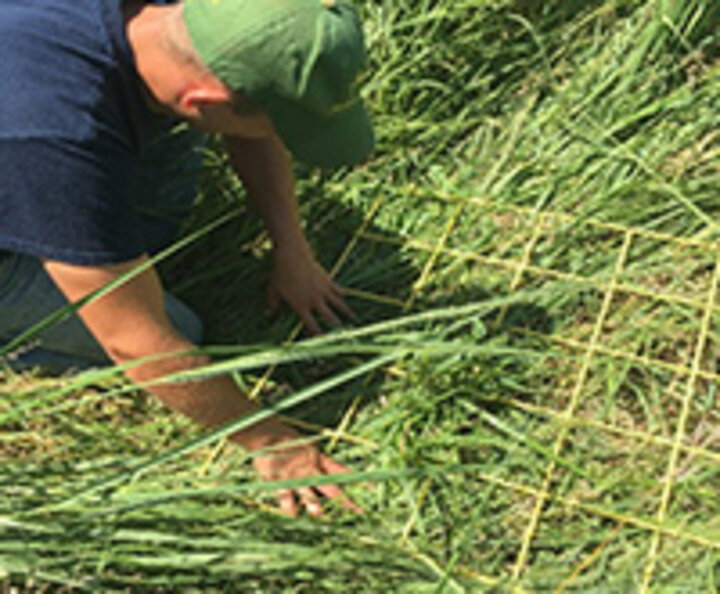

Harvest Timing Influences Switchgrass Production — Joey Geisler
Do Winter Annual Small Grains Reduce Perennial Grass Establishment? — Sarah Morton
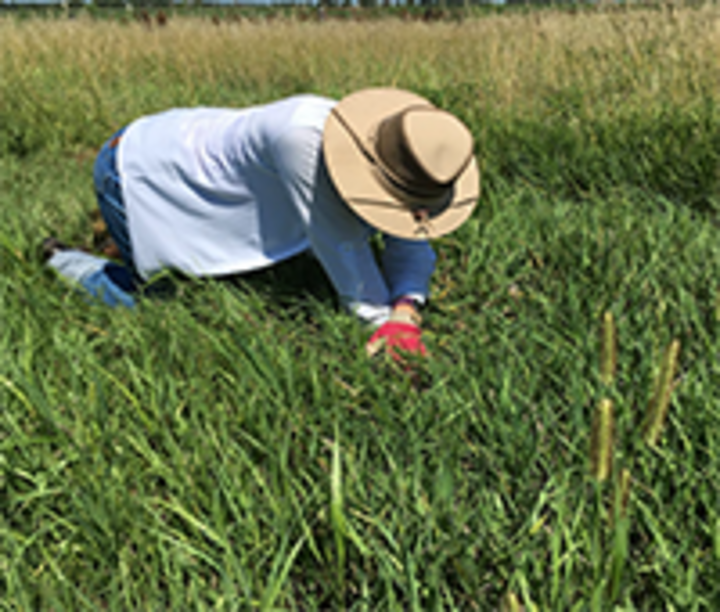
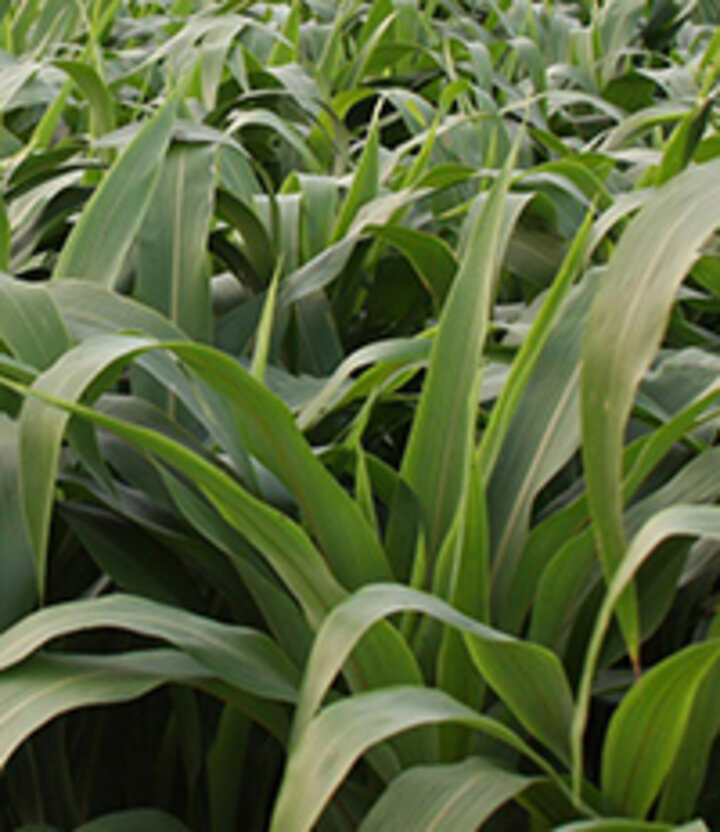
Potential Benefits of Sorghum-Sudangrass as a Companion Crop to Establish Forage and Native Legume Species — Martina LaVallie
Cover Crop Effects on Soil Properties — Andi Nichols
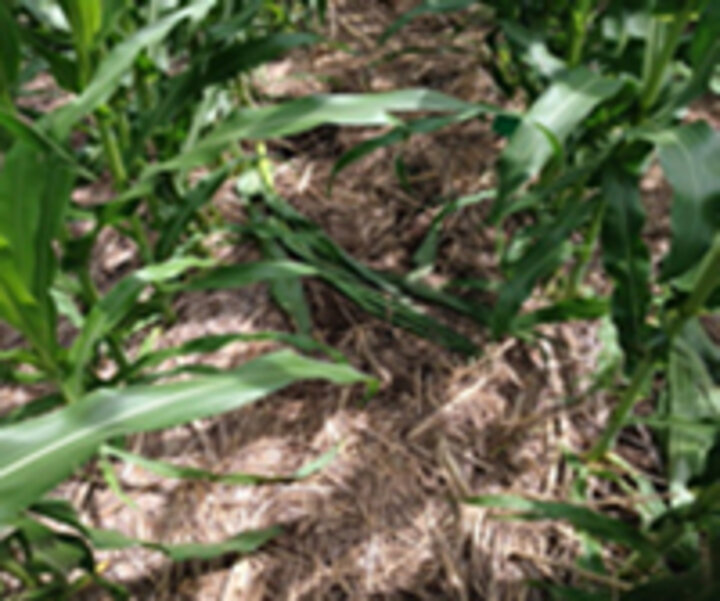
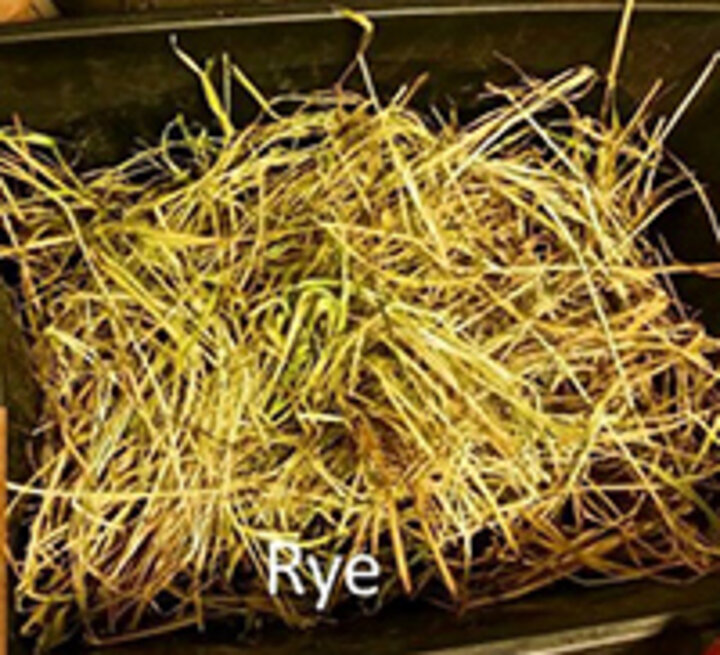
Carbon and Nitrogen Content of Winter Cover Crop Biomass — Natalie Holste
Does Cattle Grazing of Cover Crops Compact Soil? — Rebecca Clay
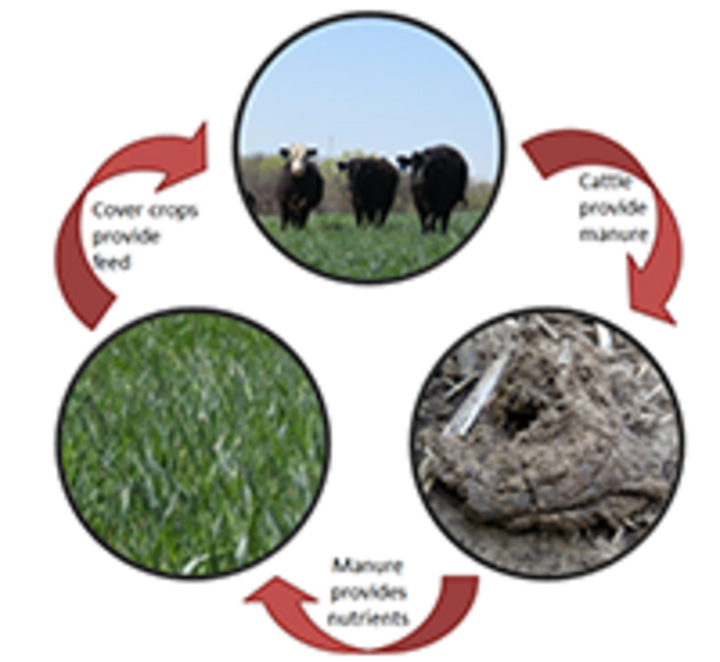
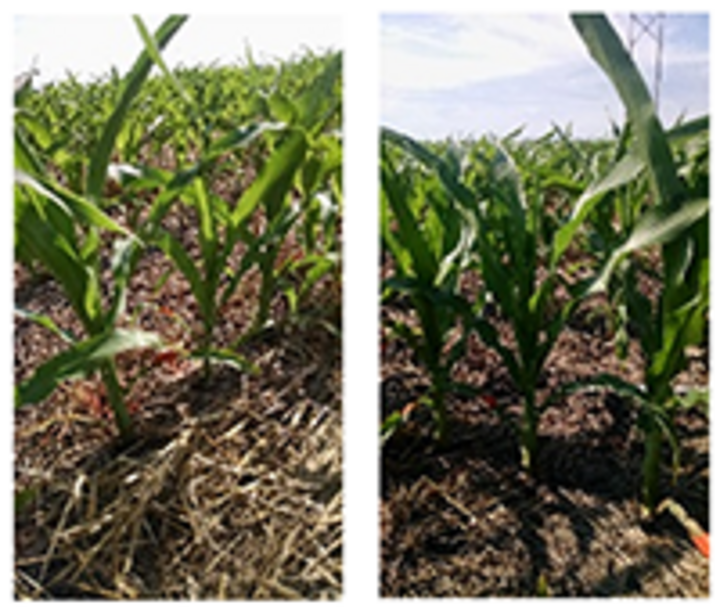
What are the Remnant Effects of Rye and Oat Cover Crops on Corn Development? — Rebecca Johnson
